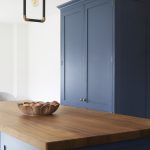Last Updated:
Wooden cutting boards can harbour bacteria and fungi due to their porous nature, posing health risks. Alternatives like bamboo, glass, or stainless steel boards are safer and easier to clean
Salmonella, E. coli and Listeria can grow in the cracks of wooden boards, contaminating the food. (News18 Kannada)
People often cut their fruits and veggies on chopping boards. After studies showed the harmful effects of plastic cutting boards, people started opting for wooden ones instead. But, do you know that even wooden boards are detrimental to health?
The Wooden Chopping Board
Wood is porous by nature. It easily absorbs moisture from the food we cut whether it be tomatoes, raw chicken pieces or garlic. According to Varsha Gor, senior clinical dietician at Apollo Hospitals in Navi Mumbai, this moisture allows bacteria and fungi to grow.
Over time, these wooden cutting boards get scratched. It is difficult to properly clean these small cracks. Consequently, harmful pathogens like Salmonella, E. coli and Listeria start to grow in them. These bacteria not only contaminate the food but also pose a health risk.
Over time, small wooden pieces of these boards get mixed with food items. Doctors warn that consuming them unknowingly can worsen stomach health.
Dangers Of Using Wooden Cutting Boards
- Fever: Poorly cleaned wooden cutting boards can harbour pathogens like E. coli and Salmonella. This can lead to foodborne illnesses. It can also cause fever, diarrhoea, vomiting, and gastrointestinal infections, including dehydration and nausea. Young children and the elderly are particularly susceptible to these infections.
- Gastrointestinal tract damage: Small wood chips or wood particles from old cutting boards can enter the body and pose a risk to the intestines.
- Contamination: Many of us have the habit of cutting meat, fish, vegetables, and fruits all on the same board. But this practice carries the risk of transferring harmful microorganisms from one food to another.
What Are The Safer Alternatives?
- Bamboo: Bamboo is an alternative to wood. It is also an environmentally friendly and durable material. Bamboo has fewer pores than traditional wooden boards and resists water absorption.
- Glass or acrylic boards: These boards are non-porous and easy to clean.
- Steel boards: Stainless steel boards have become popular in recent times as they last for a long time. They also do not have holes, and are very easy to clean.






